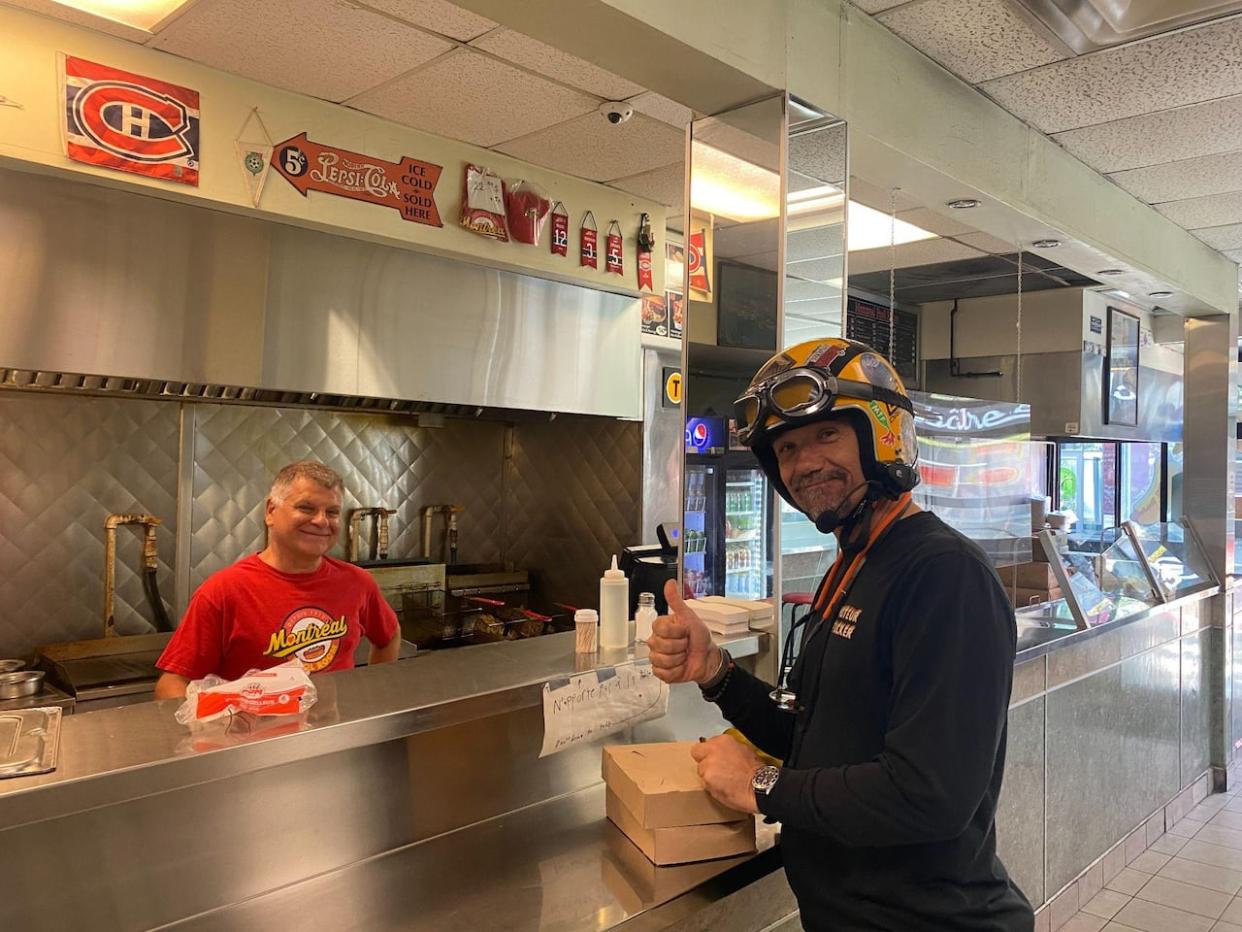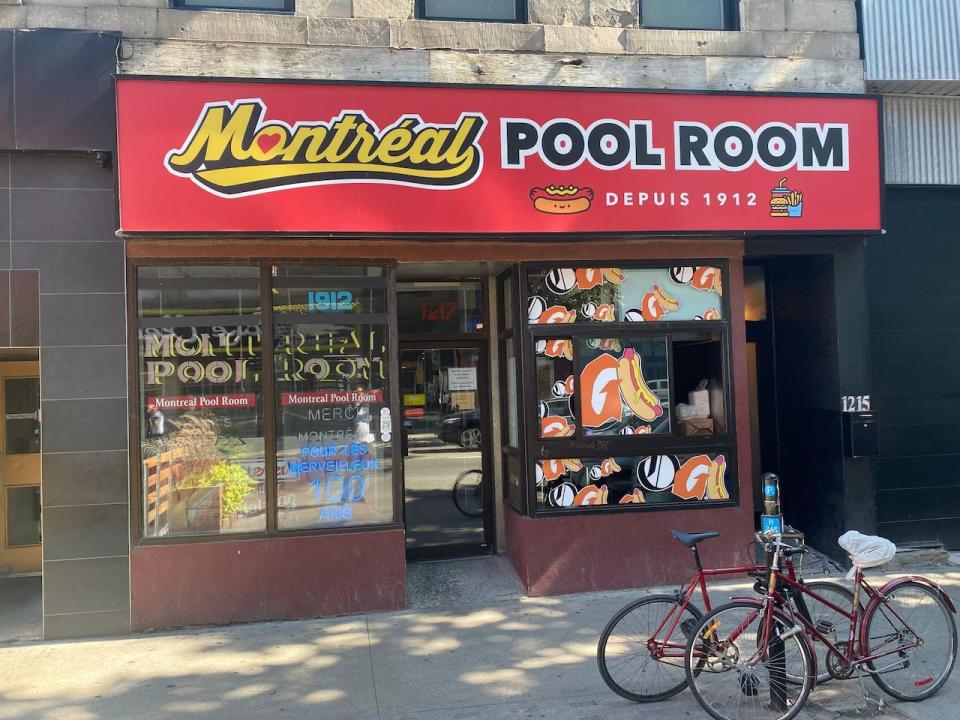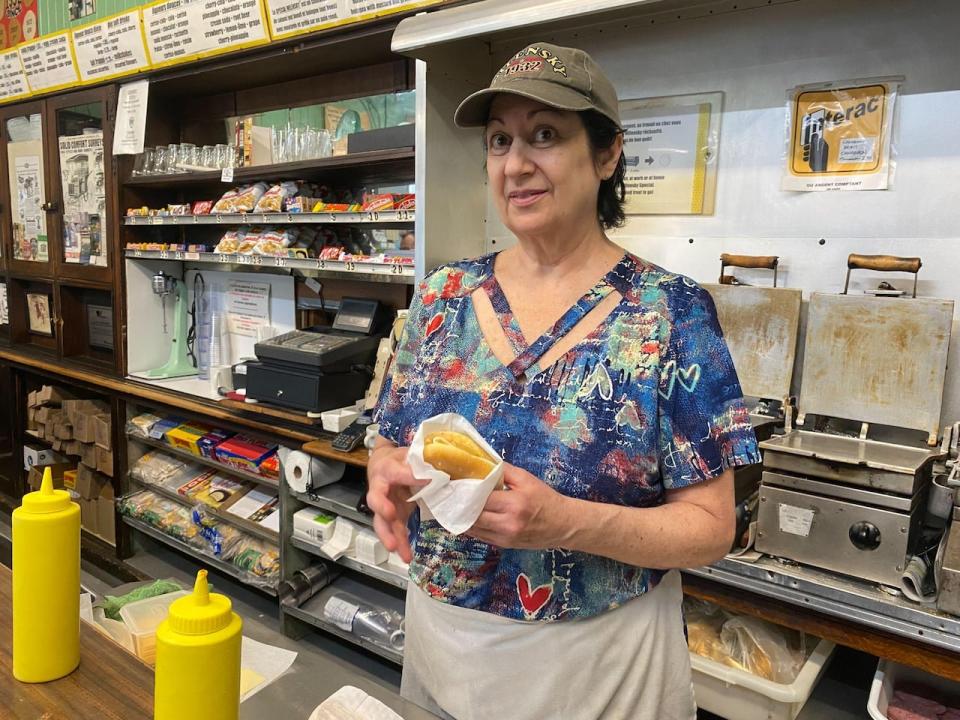They've served 'steamies' for a century. What's next for the Montreal Pool Room?

At the Montreal Pool Room, the "steamie" has been on the menu for over a century.
Opened in 1912 by Dako Filipov, the Bulgarian immigrant had a special way to prepare cabbage to dress up a steamed hotdog in a bun. It's moved to the east side of St-Laurent Boulevard since then — and hasn't had any pool tables for decades — but it's still a storied home for the Montreal fast food staple.
Spiro Goulakos, whose family owns the establishment, says the legendary Montreal eatery has been able to stay in business for so long by changing as little as possible and focusing on making the best steamie on the island.
His father, Socrates Goulakos, purchased the Pool Room in 2019 but then died two years later. Spiro says his father used to visit the establishment for his "weekly hotdog."
When he heard the owners were selling the restaurant, Socrates saw buying it as an easy choice.
But like for so many others, the pandemic changed everything. Goulakos now wonders if their tried and true philosophy will be enough to keep Montreal's second-oldest restaurant open for decades to come.

The Pool Room moved to its current location — with no pool tables — over 30 years ago. (Sacha Obas/CBC)
Quebec's Ministry of Agriculture, Fisheries and Food says the number of restaurants in the province is now down about 20 per cent compared to 2019.
The Goulakos family has been in the restaurant business for over 100 years, when they arrived from Greece and operated a bar across the street from the Pool Room's original location. Goulakos is now looking to see how he can ensure the Pool Room doesn't become another one of those closed businesses.
"It's still unique. It's still a family-owned business," says Goulakos. "We're just trying to maintain what people have come accustomed to with the Pool Room. No bells and whistles around here."
The restaurant, like many others in the city, now uses delivery apps to serve more customers. But ordering at the counter is still a cash-only experience.
An institution like the Pool Room is a rare breed. Martin Vézina, spokesperson for the Quebec Restaurant Association, says even being open for several decades is uncommon.
So Goulakos is looking for inspiration from other institutions that have managed to keep the lights on for so long.
He envisions a future where the Pool Room could become a brand similar to St-Hubert, which started out as a 78-seat chicken and fries restaurant in 1951 but soon became one of first eateries in the country to provide home delivery with their little yellow cars in 1952.
The chain now has restaurants across the province and products in grocery stores.
Is bigger always better?
Sharon Wilensky, who inherited the city's fourth-oldest restaurant, Wilensky's in Montreal's Mile End neighbourhood, believes the key to its success has actually been scaling down over the decades. The restaurant officially opened in 1932 but operated out of the back of the Wilensky's Cigar Store before then.
Her father and uncle sold food at the store, which also operated as a barber shop, because they couldn't find other work during the Great Depression.

Sharon Wilensky took over Wilensky's Light Lunch from her father. The restaurant has been operating since the Great Depression. (Sacha Obas/CBC)
"I thought a lot about how much more difficult it was for them, which really kept me going during the pandemic," says Wilensky.
Today, although you can still order a hotdog, the establishment is known for its baloney sandwiches. She says it's pretty much the only thing people order, except for a cherry cola to wash it down.
"A lot of these fast food franchises popping up all over the place don't have character. We have something special and authentic here," says Wilensky.
The future of the Pool Room
Goulakos isn't looking to lose any of the Pool Room's authenticity. But he wants to find a way to bring the business to the next level, and believes franchising might be the way to do it.
"It's less of a family affair and more of a partner affair," says Vézina, when it comes to the restaurant industry landscape these days.
He says more restaurants are opening as business partnerships rather than family ventures where recipes and practices have been passed between generations.
"We think we have the capabilities of getting into new markets and expanding the brand a little bit," says Goulakos.
"It would just take the right type of support and partners to execute something like that on a bigger scale."

